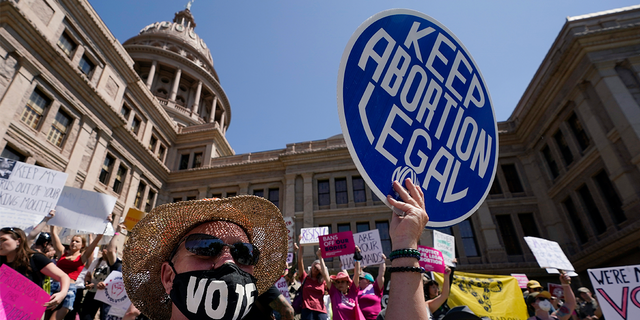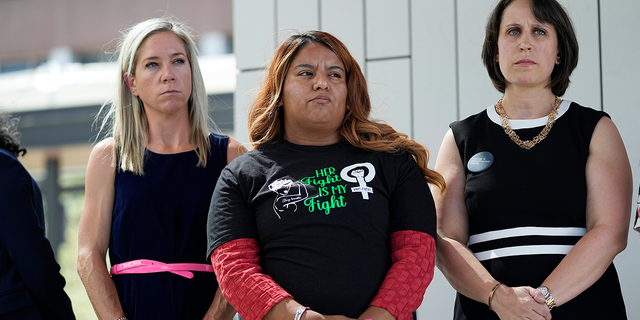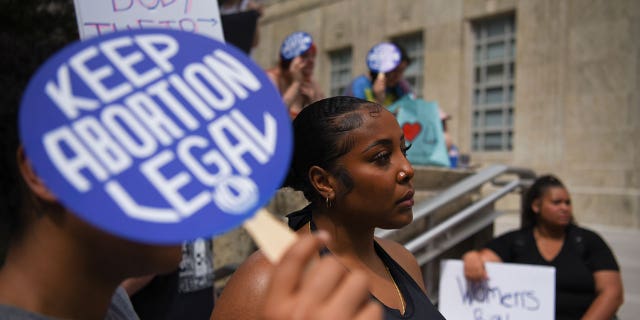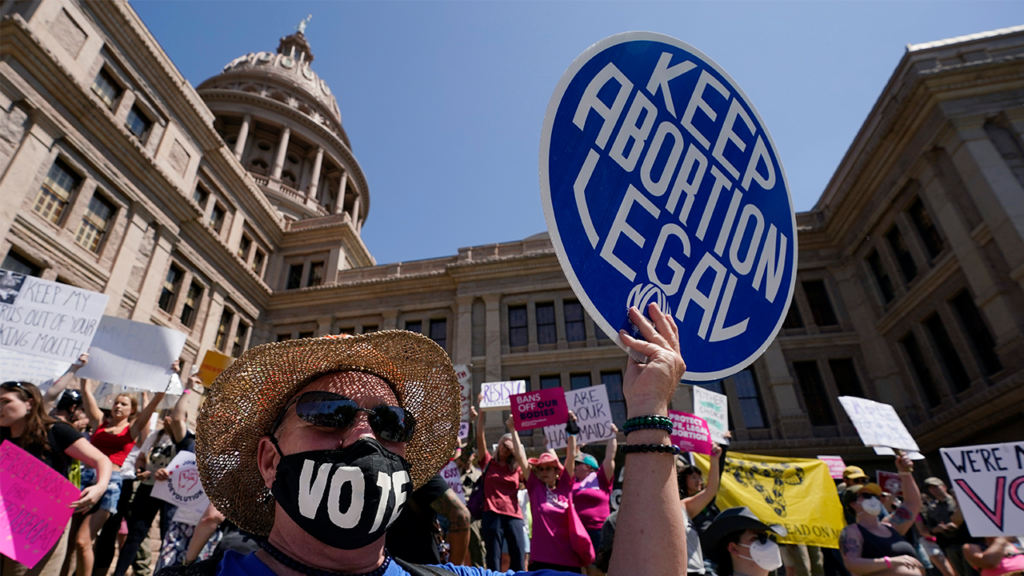A Texas judge ruled Friday that the abortion ban in the Lone Star State has shown to be too restrictive for women with serious pregnancy complications and that the law must allow exceptions in which doctors would not be concerned about criminal charges.
The ruling by State District Judge Jessica Mangrum is the first to put a dent in Texas’ abortion law since it took effect last year following the Supreme Court’s decision to overturn Roe v. Wade, which allowed states to make their own laws regarding abortions. And supporters of abortion access view the Texas case as a potential model to weaken restrictions in other Republican-led states with abortion bans.
The challenge is also believed to be the first in the country brought by women who have been denied abortions since the Supreme Court’s decision.
But the injunction was immediately blocked by an appeal to the Texas Supreme Court, according to the state attorney general’s office.
NEW BLUE STATE LAW GIVES GOVERNMENT INCREASED POWER TO TARGET PREGNANCY CENTERS

A Texas judge ruled Friday that the state’s abortion ban has shown to be too restrictive for women with serious pregnancy complications. (AP)
“The trial court’s injunction is ineffective, and the status quo remains in effect,” spokesperson Paige Willey said.
Mangrum’s ruling granted a temporary injunction preventing Texas from enforcing the ban against physicians who use “good faith judgment” to terminate a pregnancy that creates a risk of infection or is otherwise unsafe for the woman to continue because of complications.
The injunction also applies to women who have a condition “exacerbated by pregnancy” and cannot be effectively treated during their pregnancy.
Additionally, the ruling covers instances where the fetus has a condition that makes it unlikely to survive after birth.
“For the first time in a long time, I cried for joy when I heard the news,” lead plaintiff Amanda Zurawski said in a statement. “This is exactly why we did this. This is why we put ourselves through the pain and the trauma over and over again to share our experiences and the harms caused by these awful laws.”

Amanda Zurawski (left), who developed sepsis and nearly died after being refused an abortion when her water broke at 18 weeks and Samantha Casiano (center), who was forced to carry a nonviable pregnancy to term and give birth to a baby who died four hours after birth, stand with their attorney Molly Duane outside the Travis County Courthouse. (AP)
Mangrum said the injunction would stay in place until the case is completed. A trial for the case is scheduled to begin on March 25.
According to a statement from First Assistant Attorney General Brent Webster, however, the state’s immediate appeal “stays an activist Austin judge’s attempt to override Texas abortion laws pending a ruling by the Texas Supreme Court.”
The immediate impact of Friday’s ruling is also unclear after all abortion clinics in the state have closed in the past year.
The judge found that portions of the abortion law violated the rights of pregnant women under the Texas Constitution.
SPECIAL ELECTION FOCUSED ON ABORTION CAUSES OFF-THE-CHARTS EARLY TURNOUT IN OHIO

The injunction was immediately blocked by an appeal to the Texas Supreme Court, according to the state attorney general’s office. (REUTERS/Callaghan O’Hare)
CLICK HERE TO GET THE FOX NEWS APP
The women challenging the law were determined to have each experienced “emergent medical conditions” during pregnancy that put their health or lives at risk and “required abortion care.” They were delayed or denied abortion access because of uncertainty about the possibility of physicians facing criminal charges for providing abortions, the ruling said.
“Today’s ruling should prevent other Texans from suffering the unthinkable trauma our plaintiffs endured,” said Nancy Northup, president and CEO of the Center for Reproductive Rights, which helped bring the lawsuit.
Under Texas’ law, doctors who perform abortions could face life in prison and fines of up to $100,000.
The Associated Press contributed to this report.




